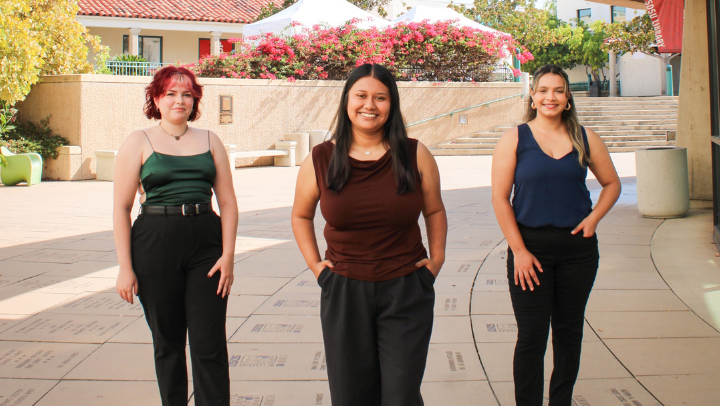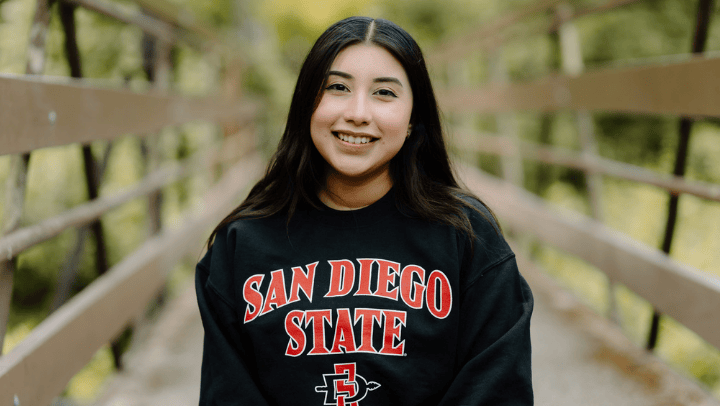Eight SDSU students earn prestigious CSU pre-doctoral scholarships
Selected for the 2025-26 California Pre-Doctoral Program, students will receive funding and mentorship to pursue doctoral studies and diversify the future professoriate.

Eight San Diego State University students were selected for the California Pre-Doctoral Program for the 2025-26 academic year, receiving scholarships to support doctoral aspirations in fields ranging from astronomy to child and family development.
They are among 85 students from throughout the California State University system selected for the Sally Casanova Scholarship, which is named for the CSU administrator who launched the program in 1989. The $5,000 scholarship is open to current juniors, seniors and graduate students and is intended to increase diversity within the pool of university faculty.
Among other uses, scholars may apply their awards toward travel to doctoral-granting institutions and professional meetings, books and software, and costs such as doctoral program application fees and graduate entrance examinations. Scholars also have the opportunity to apply for a 2026 summer research experience at a doctorate-granting institution.
The 2025-26 SDSU recipients, their faculty mentors and areas of study are:
- Carolina Lourenco Costa — Ariana Stickel, psychology
- Valarie Castellanos-Ponce — Jessica McCurley, psychology
- Anahi Martinez — Ramona Pérez, Center for Latin American Studies
- Ethan Alarcon — Douglas Leonard, astronomy
- Daniela Hernandez — Felisha Herrera Villarreal, Administration, Rehabilitation, and Postsecondary Education
- Tristan McDonnell — Maya Capelson, biology
- Leslie Gomez — Eric Felix, Administration, Rehabilitation and Postsecondary Education
- Rei M. Perez Munoz — Vanya Lazarevic, Child & Family Development
Two of the recipients are first-generation college students who are determined to use their scholarships for the benefit of broader communities.
Martinez, who is in her final year of a master’s degree in Latin American Studies, hopes to become a professor and conduct research in the CSU system. She has taken two research explorations in Oaxaca to pursue her interest in linguistic anthropology, exploring the interconnected relationship between food, culture and language.
“My main goal is honestly to support any initiatives or resources for language revitalization and preservation, not just in Mexico, but also to bring it back to the transnational communities in the United States,” Martinez wrote in response to questions from SDSU NewsCenter.
“I want to bring resources, and for more of the younger generations to try to jumpstart into learning about the language, but not just the language alone, but also intertwining their culture and food with it,” she said.
 Open the image full screen.
Open the image full screen.
“Areas of research I am drawn towards are chronic illness development and stress biology — explicitly focusing on these concepts in the Latine community,” they explained. “My goal with a doctoral degree is to continue my understanding of social determinants of health, examining the connections between structural inequities and health outcomes, while exploring the distribution of power in medical care—and which communities are able to access it.”
Muñoz, who was born in Cuba and grew up in Orange County, said the funding will make a massive difference in their professional future. A first-generation college student, they are excited to make campus visits to their preferred Ph.D. programs, become a professional member of science organizations and attend conferences.
Leslie L.J. Reilly and Michael Klitzing contributed to this article.



